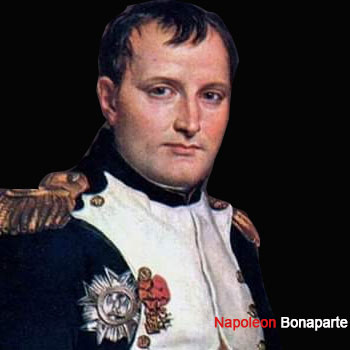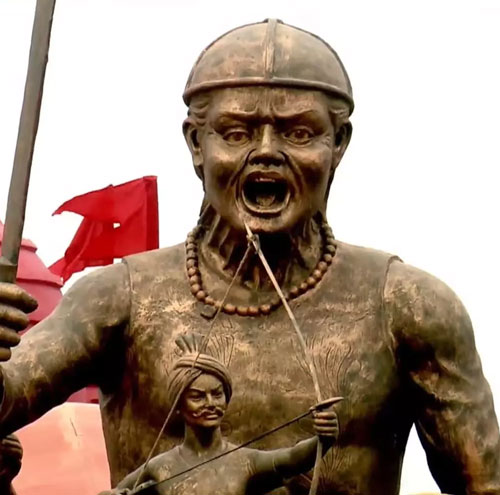Napoleon Bonaparte: The Military Genius Who Changed the World
Napoleon Bonaparte: Life History
Napoleon Bonaparte: Napoleon Bonaparte was the Emperor of France from 1804 to 1815. Because of his interest in and subsequent exploration of Egypt, he is often known as the “Father of Egyptology.”
He was born as Napoleone di Buonaparte in the town of Ajaccio in Corsica, France, on August 15, 1769, only one year after the island was transferred to France by the Republic of Genoa. He later adopted the more French-sounding name Napoleon Bonaparte.

Napoleon commanded troops that quelled a royalist Parisian uprising in 1795 and as a reward was given the army of the interior to lead. Soon After, he was made the commander in chief of the army of Italy.
He married Josephine de Beauharnais in 1796, before going off to lead the poorly equipped army based in Italy. The Italian campaign was a success over the Austrians. With victory across Italy, and his signature on the ‘Truce of Leoben’, his popularity across much of Europe was sealed.
He set his sights on British domination and planned to attack Egypt, then India. While he won a number of triumphs along the way. His fleet was destroyed by Nelson at Abu Qir in 1798.
The Ottomans then proclaimed battle on France, however were crushed by Napoleon in Egypt. Back in France, the public authority was in emergency. Napoleon furtively left Egypt for Paris, where he schemed to arrange an overthrow and was named first delegate on November 9, 1799.
His standard saw the centralisation of government, the production of the Bank of France, reestablishment of Roman Catholicism as the state religion and regulation change with the Code Napoleon.
Throughout the following two years, he would overcome the Austrians at Marengo, and sign the Treaty of Luneville (1801) and Amiens (1802), which laid out French power on the landmass. In 1802, the constitution of France was adjusted so Napoleon could be diplomat forever.
Napoleon Bonaparte: The Cultural Icon Who Still Inspires Today
Before long, Britain announced battle on France and sent help to Napoleon’s adversaries to support his homicide. In 1804, he broadcasted himself the ruler of France. Inside the year, he guaranteed sovereignty of Italy and attached Genoa, maddening Britain, Austria, Russia and Sweden who associated against him.
Remarkable fights followed, including a triumph at Austerlitz over the Russians and Austrians (1805) and an awful loss again on account of Nelson at Trafalgar (1805). In any case, Napoleon acquired a lot of domain somewhere else, including extension of Prussian terrains which apparently gave him control of Europe.
The Holy Roman Empire was broken up, Holland and Westphalia made, and over the course of the following five years, Napoleon’s family members and supporters were introduced as pioneers (in Holland, Westphalia, Italy, Naples, Spain and Sweden).
In 1810, he had his childless marriage annulled and re-married in the hopes of getting an heir. Napoleon II was born a year later.
The Peninsular War of 1808-1814 saw the beginning of Napoleon’s decline. Costly defeats, an empire that was unexpectedly difficult to control and growing unrest with his iron will, all contributed. His invasion of Russia cost him further. His Grande Armee of 500,000 men would be virtually destroyed during 1812 and Napoleon returned to Paris in December with fewer allies than he started with.
The Allies defeated him in battle over the course of the next two years, and finally, on March 31, 1814, Paris fell. Napoleon abdicated to Elba. There he learnt that the French, and especially the army, were unhappy with the treatment of the restored Bourbon leadership.
He took this opportunity to march on Paris and reinstate himself for his fateful ‘100 Days’. The Battle of Waterloo ended his brief reign. He surrendered to Britain, hoping for leniency, and instead was exiled to St. Helena where he died on May 5, 1821.






